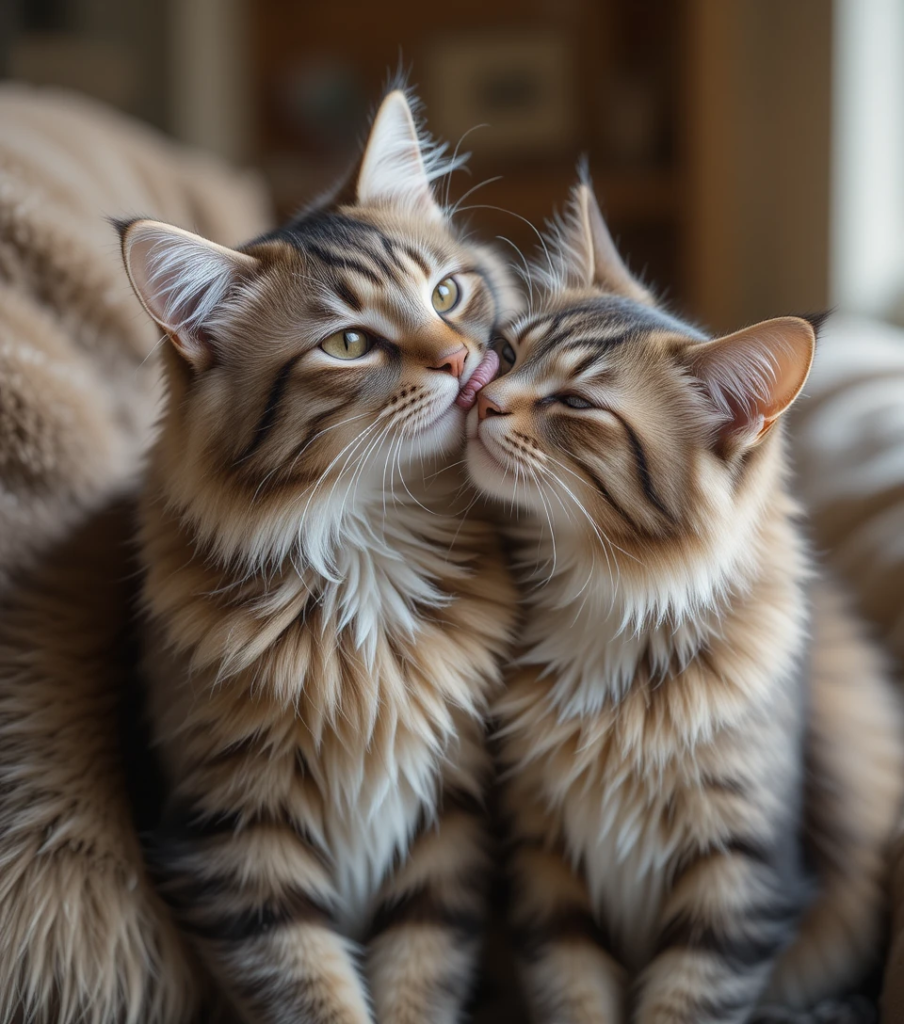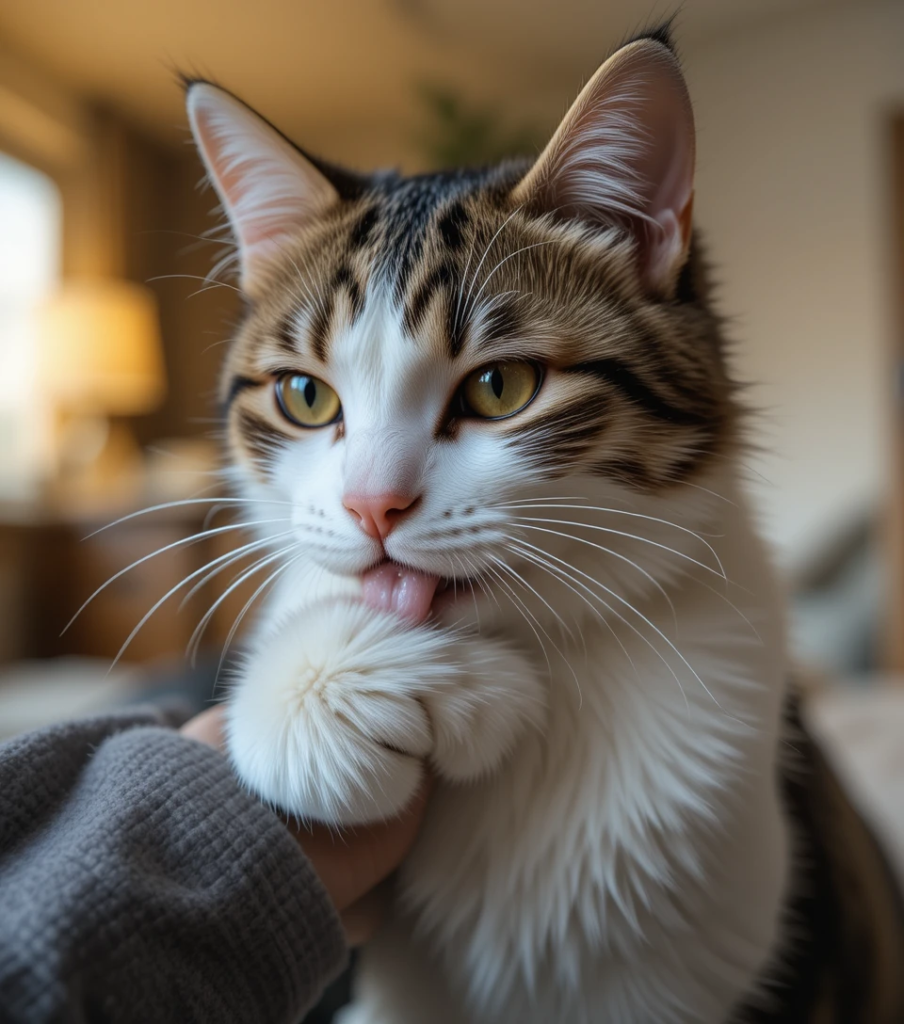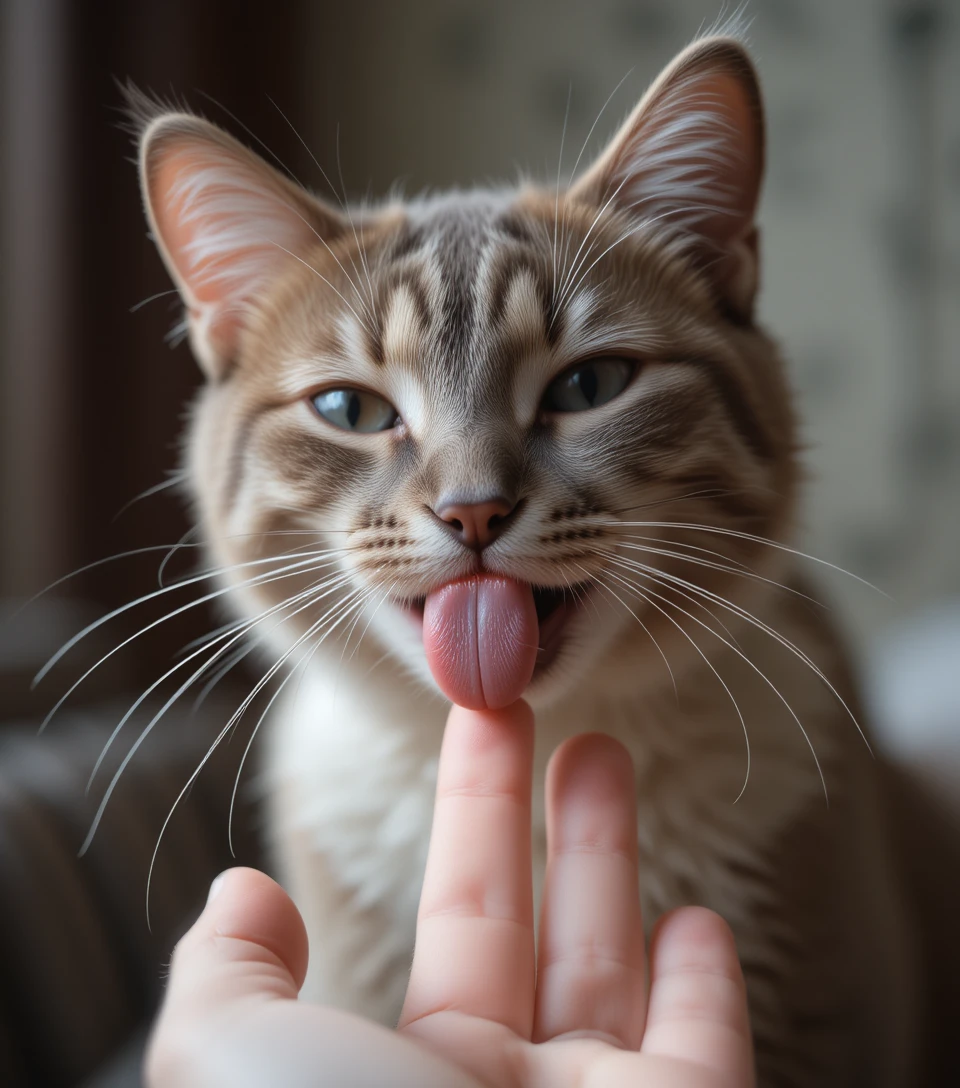Introduction
If you’ve ever wondered, “Why does my cat lick me?” you’re not alone. Many cat owners experience this quirky feline behavior and are curious about its meaning. While it might seem like a simple act, licking can have multiple reasons behind it. In this article, we’ll uncover five powerful reasons why your cat licks you and what it means for your bond.
1. A Sign of Affection
Cats often lick their owners as a way of expressing love and trust. This behavior originates from kittenhood when a mother cat grooms her kittens to show care and affection. If your cat licks you, it’s likely a sign that they see you as part of their family and want to nurture that bond.
How to Respond:
- Accept it as a loving gesture.
- If it becomes excessive, gently redirect their attention with a toy or petting session.
2. Grooming and Social Bonding

Cats groom each other to strengthen social bonds in a behavior known as allogrooming. When your cat licks you, they are extending that instinctual behavior to you, reinforcing the trust and companionship they feel.
How to Respond:
- Enjoy the bonding moment!
- If your cat’s licking becomes too much, provide them with a soft grooming brush as a distraction.
3. Marking You as Their Territory
Cats have scent glands in their mouths, and licking is one way they deposit their scent onto you. This is their way of marking you as part of their territory, ensuring other animals know you belong to them.
How to Respond:
- Understand it’s a natural instinct.
- If territorial behavior becomes overwhelming, ensure they have enough personal space and enrichment activities.
4. Stress or Anxiety Relief

Some cats lick as a self-soothing mechanism when they are feeling anxious or stressed. Licking releases endorphins, which help them feel calmer. If you notice your cat licking excessively, it may be a sign of underlying anxiety or a medical condition.
How to Respond:
- Monitor for excessive licking.
- Create a calm environment with hiding spots and enrichment toys.
- If the behavior persists, consult a veterinarian.
5. You Taste Good!
Your skin’s natural saltiness, sweat, or even scented lotions can be appealing to your cat. They might lick you simply because they enjoy the taste!
How to Respond:
- Wash off any scented lotions or sweat if your cat’s licking bothers you.
- Offer treats or distractions if needed.
When to Be Concerned
While occasional licking is normal, excessive licking may indicate stress, a medical condition, or nutritional deficiencies. If you notice bald spots, excessive grooming, or obsessive licking, consult your vet.
How to Manage the Behavior
- Redirect Attention: Offer a toy or treat when your cat starts licking excessively.
- Grooming Alternatives: Brush your cat regularly to satisfy their grooming instinct.
- Provide Mental Stimulation: Enrichment activities, puzzle toys, and interactive play can reduce excessive licking caused by boredom or anxiety.
Conclusion
Your cat’s licking is usually a sign of love, trust, and natural feline instincts. Understanding the reason behind this behavior can help strengthen your bond while ensuring their well-being. If excessive licking becomes a concern, observing patterns and making small adjustments can help manage the behavior.
10 Frequently Asked Questions (FAQs)
1. Why does my cat lick me then bite me?
This is often playful behavior or a sign of overstimulation. Pay attention to their body language to prevent unwanted bites.
2. Is it safe to let my cat lick me?
Generally, yes. However, avoid letting them lick open wounds, as cat saliva contains bacteria.
3. Why does my cat lick my hair?
Licking hair is a grooming behavior that signifies affection and bonding.
4. How can I stop my cat from licking me too much?
Redirect their attention with toys, treats, or petting to gently discourage excessive licking.
5. Can licking be a sign of a health issue?
Yes, excessive licking may indicate stress, allergies, or underlying health concerns. Consult a vet if needed.
6. Why does my cat lick my fingers?
Your fingers may carry food scents, or your cat may simply enjoy the saltiness of your skin.
7. Is licking a sign that my cat is stressed?
It can be. Observe if your cat licks compulsively, which might indicate anxiety.
8. Why does my cat lick me before sleeping?
This is a comforting behavior that mimics kittenhood when they groomed before resting.
9. Do all cats lick their owners?
No, some cats show affection in other ways, like headbutting or purring.
10. Should I be worried if my cat suddenly starts licking me more?
Sudden changes in behavior may indicate stress or medical issues. If licking increases drastically, consider a vet check-up.
By understanding why your cat licks you, you can build a deeper bond and ensure their behavior remains healthy and balanced!

